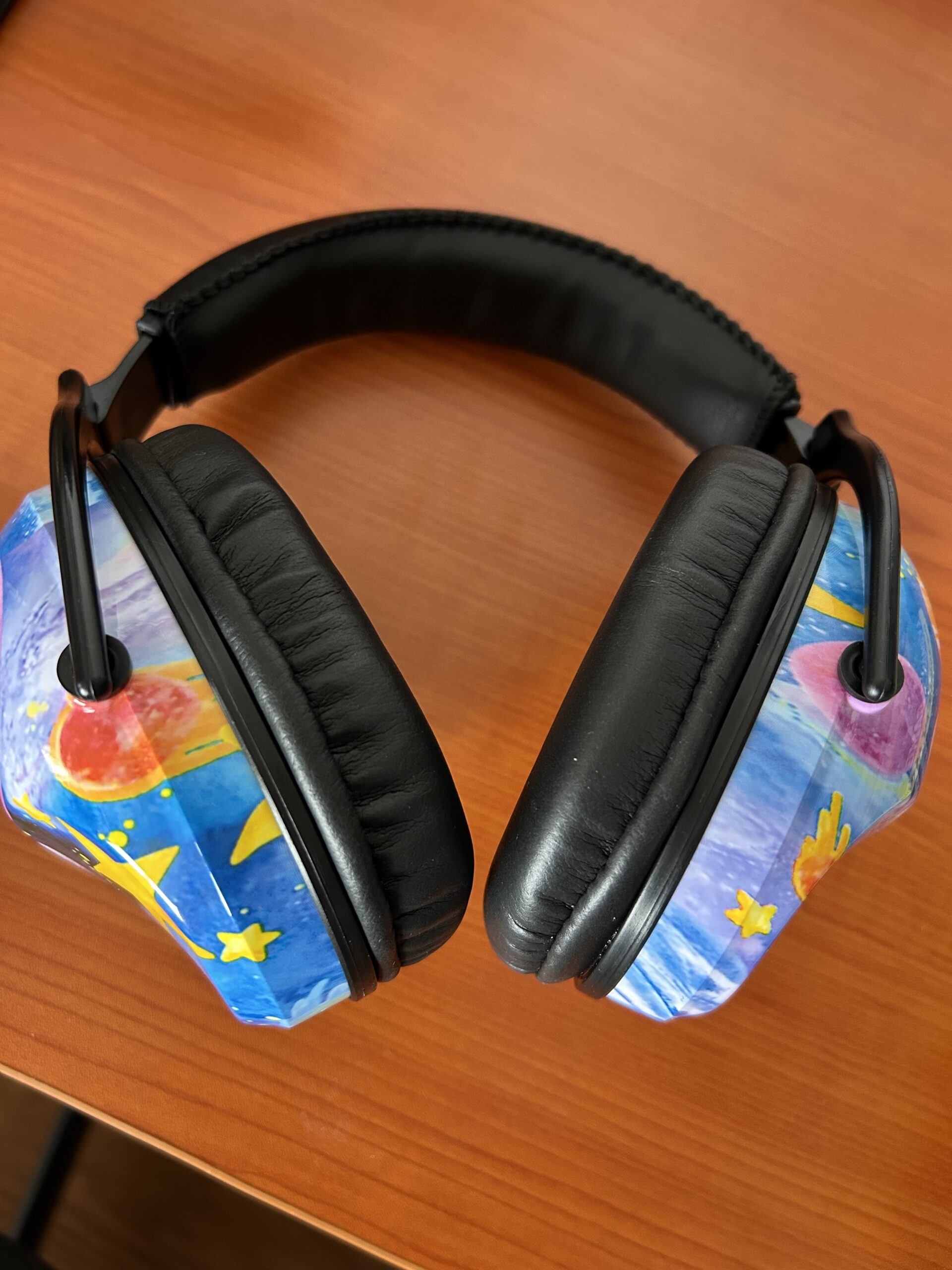As an autistic person, I experience various sensory differences. I can’t cope with bright, flashing lights. I’m highly sensitive to temperature changes. Certain fabrics and clothing seams/tags make my skin itch. But the biggest one is my sound sensitivity, and yet… I work with sound.
This might seem like a contradiction. Indeed, it’s something I’ve been asked about a lot. Even my own dad asked me recently how I’m able to go to concerts if I find sound that difficult to deal with. But what a lot of people don’t understand is that I’m not averse to all sounds; just unwanted sounds. To me, there is a big difference between enjoying my favourite music and having to hear the roar of a motorbike as it passes me in the street (I use this example because it is probably the sound I hate most in the world). It’s not always about the volume. Sometimes it is, but more often it’s about things like frequency, whether there are multiple sounds overlapping, or whether the sound is sudden and unexpected. My brain also has difficulty filtering out particular sounds and focusing on others. If I’m in a busy café, for instance, and the coffee machine is making noise, the radio is on and there are two or three different conversations happening in close proximity while someone is trying to talk to me, there is no way I’m going to be able to focus on what they are saying. It’s all happening at equal intensity, which can be very overwhelming.
Of course, not all autistic people experience sound in the same way. Some may be under-sensitive to it, or not particularly sensitive at all. This is just how I personally experience it.
Having this particular sensory profile isn’t a wholly negative thing, though. I fully believe it makes me a better audio engineer. As with most things, there are pros and cons.
Pros
- When mixing, I’m quick to notice frequencies and noises that need to be removed, sometimes when others don’t hear them.
- Because of my sensitivity, I tend to be able to mix at lower levels and am highly conscious of things being too loud, thus protecting my hearing in the long-term.
Cons
- I can be quite a perfectionist, to the point where I hyper-focus on sounds that the average listener probably won’t pick up on anyway.
- Sometimes finding things too loud can actually be a disadvantage, as I’m not always sure whether it actually is too loud or if it’s just my own perception of it. This is where it’s helpful for me to seek a second opinion (but it needs to be from someone who understands audio, as most people tend to believe louder is always better, which obviously is not the case).
When I first started studying sound, we were taught not to rely too heavily on the visual representations within the DAW we were using, i.e. looking at the sound wave for imperfections rather than really listening. This obviously makes sense, as you have to develop a good ear to be able to do this kind of work. However, I also have to admit to being a visual kind of editor. I will of course use my ears first and foremost, and have gotten into the habit over the years of closing my eyes when listening through something repeatedly. But I do love using the spectral frequency display in Audition, and have learnt what to look out for when I want to remove something. I do think my autistic brain is partly responsible for this, as I’m definitely drawn to patterns, especially visual ones. But I have to admit to feeling guilty about working this way, until I read an autistic person’s account of learning to use audio editing software to work on wildlife recordings they’d gathered, and realised that this seems to be a common way of doing things when you’re neurodivergent. They said they had learnt to recognise what bird calls ‘looked like’ in comparison to unwanted sounds like car horns and sirens. I realised then that we tend to get too hung up on the ‘right’ and ‘wrong’ way to do these things. If we get good results in ways that work for our individual brains, that’s what’s important.
For anyone out there who has a fascination with sound, but may be wondering if their sensory profile will allow them to work with it, the answer is: absolutely. It might take a few adjustments to work in a way that’s comfortable for you and allows you to prevent overload, but it can be done, and you can be really, really good at it.
